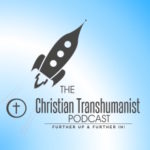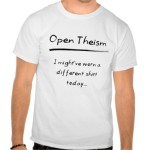We run our website the way we wished the whole internet worked: we provide high quality original content with no ads. We are funded solely by your direct support. Please consider supporting this project.
Why do you claim that everybody, whether they know it or not, believes that the future is partly open?
Whatever a person may theoretically believe, they act like the future is partly open. For, as a matter of fact, there’s no other way to act.
Think about it. Every time we deliberate between options on the way toward making a decision, we assume (and we have to assume) that a) the future consists of possibilities and b) that it is up to us to resolve these possibilities into one actuality (that is, our concrete decision). It’s simply impossible to deliberate in a way that manifests a different set of beliefs.
Go ahead and try it. Right now, think about a matter you need to resolve with a decision. Consider your possibilities and weigh your options. Now, try to do this without presupposing that these possibilities are genuinely real and genuinely up to you to resolve. You may consciously believe that the fact of what you’re going to decide has been “out there” for an eternity in the mind of God, but you can’t act on this belief as you deliberate. In fact, you act against this belief in your very act of deliberation.
What makes this interesting is that it’s something of a truism that we reflect our true convictions more by how we act than by what we say or even think (for our conscious minds are frequently deceived). If I truly believe my car is rigged to explode when I start it, for example, and if I truly believe life is worth living, then I will not get into my car and start it. If I profess these two beliefs and yet get into my car and start it, you’ll know that I’m either insincere or self-deceived in professing one or both of these beliefs. Our truest convictions are manifested not by what we say or even think, but by how we act.
From this it would seem to follow that everyone – including those who adamantly deny it – really believes the future is partly open. Just watch how they deliberate.
Here’s the irony. In the very act of deliberating about whether to embrace or reject the open view of the future, people presuppose the open view of the future is true.
The only remaining question, then, is whether they’ll get their theoretical beliefs about the nature of the future to line up with their core conviction about the nature of the future. .
Category: Q&A
Tags: Open Theism, Q&A
Topics: Free Will and the Future
Related Reading

Greg’s Interview on The Christian Transhumanist Podcast
Here is an interview I did for The Christian Transhumanist Podcast that I wanted to share with all of you. Micah Redding and I discuss everything from Relativity Theory to Politics. I think you’ll find it interesting, but I want to offer a word of clarification before you listen. At one point in this interview…

Is Open Theism Incompatible With a Chalcedonian Christology?
Question: The Chalcedonian Creed says Jesus was “fully God and fully human” and that these “two natures” remained distinct in the Incarnation, even though Jesus was one united person. I’m told that part of the reasoning behind the concern to keep Jesus’ humanity distinct from his divinity was to protect the “impassibility” of the divine…

Molinism and Open Theism – Part II
In the previous post on this topic I briefly outlined Molinism and then discussed “the grounding objection.” In this post I’ll first discuss another fundamental objection to Molinism and then discuss how it is overcome by the Open View of the Future. In the process it will be clear how the Open View differs from…

Does the Bible teach total non-violence?
I wouldn’t say the whole Bible teaches non-violence, for you find Yahweh engaging in quite a bit of violence in the Old Testament. But I would say that the whole Bible clearly presents non-violence as God’s dream for humanity, and I would most certainly say this dream is realized in Jesus Christ and the Kingdom…

